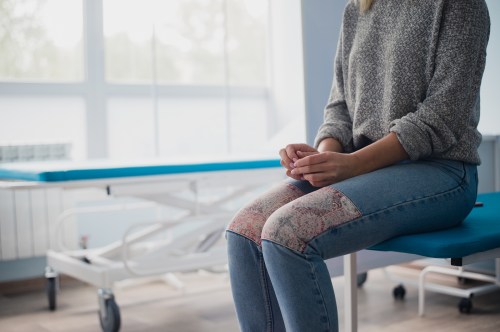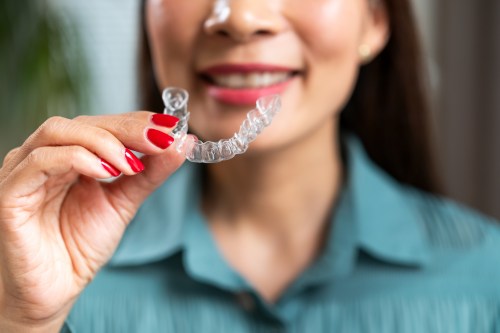One of the many troubling side effects of the COVID-19 pandemic is that it’s made people afraid to seek preventative medical care—no matter how important it is. An article published in May in the journal Epic Health Research Network (EHRN) found that the number of cervical, breast, and colon cancer screenings dropped between 86 percent and 94 percent below average this year due to the pandemic.
Experts in This Article
Deborah Lindner, MD is an OB/GYN and the chief medical officer at Bright Pink, a national non-profit organization dedicated to the education, support and early detection of ovarian and breast cancer awareness. She is a staff physician at Midwest Vein Center in Chicago where her clinical focus is treating varicose veins during and after pregnancy.
board-certified OB/GYN and founder of the Integrative Medical Group of Irvine
Part of this decline could be attributed to the fact that many screening centers were closed at the beginning of the pandemic, and public health agencies generally advised people to avoid any medical care unless it was a true emergency. However, in a follow-up report published in July, EHRN found that the number of cervical, breast, and colon cancer screenings increased slightly, but were still 29 to 36 percent lower than average. The report adds that between March 15 and June 16, there were 285,000 missed breast exams and 40,000 missed cervical exams, which represents 63 percent and 67 percent respective declines in the number of screenings there likely would be compared to historic averages.
This is concerning, considering that regular screenings in the form of mammograms and pap smears are considered to be the first line of defense for detecting breast and cervical cancer, respectively. But do the benefits outweigh the potential risks of going to the doctor right now during a pandemic? We asked two top OB/GYNs to find out.
Why are mammograms and pap smears important?
First, it’s helpful to know why these tests are important in the first place. “In terms of mammograms, they really are the best and only screening tool we have for breast cancer,” says Deborah Lindner, MD, the chief medical officer for Bright Pink, a national non-profit organization dedicated to the education, support, and early detection of ovarian and breast cancer. “Breast self-exams and even clinical breast exams haven’t shown to be great screening tools for breast cancer, so mammograms are truly the best way to detect and catch it early.” Meanwhile, she says, there isn’t a self-exam or substitute for pap smears, which are exams that screen for cervical cancer—a cancer that often doesn’t have physical symptoms in its early phases.
In terms of how often you should get a mammogram and pap smear, there are screening guidelines that can be used as a baseline, but integrative OB/GYN Felice Gersh, MD, says it really comes down to someone’s personal risk factors, which she says each person should discuss with their doctor. For example, she explains that in the past, it was recommended to get a pap smear every year, but if someone does not have any of the high-risk factors for developing cervical cancer (such as an HPV or herpes infection), she says their doctor may instead advise them to be screened every two or three years. “It truly depends on someone’s personal story and personal risk,” she says.
She says this goes for mammograms as well. If someone has a family history of breast cancer or has dense breasts, for example, they should be screened more often than someone who does not have these risk factors. (But again, that’s something that’s decided between a person and their doctor.)
However, Dr. Lindner says people shouldn’t assume that just because they aren’t high-risk for breast or cervical cancer doesn’t mean they are zero risk. “Everyone is average risk because there is still a risk [of developing breast and ovarian cancer],” she says. “If you’re waiting until the pandemic is over to go to your doctor, well, that’s not going to be for a long time,” she says. “With any cancer, early detection is key, so putting off screenings could mean not catching cancer until it’s at a progressed stage.”
That said, Dr. Gersh says that people who have a higher risk of becoming severely ill from COVID-19 (such as people over age 65 or with existing heart or lung conditions) may want to talk to their doctor to weigh the pros and cons of getting screened versus potentially contracting the novel coronavirus. “For example, if someone is over 75 or is really elderly and frail, getting a mammogram probably isn’t their biggest priority right now and that’s okay,” she says.
How to safely get a mammogram or pap smear during COVID-19
If you’re due for a pap smear or mammogram this year and want to book an appointment, both doctors emphasize that there are safe ways to get these exams right now. “People not receiving health care because they’ve been afraid to go to the doctor has been a big problem,” Dr. Gersh says. She reiterates that there are ways to safely see your OB/GYN for these tests.
First, Dr. Lindner says you should come in when you are feeling healthy. If you have any symptoms of COVID-19 or have been around someone with symptoms, coming in for an appointment could put others at risk. Feeling good? Put on your face mask and be prepared to wear it for your entire appointment. This includes in the waiting room and during your actual visit with your doctor. “Your doctor should wear a mask and a face shield during the appointment and we know that when these precautions are followed, the odds of contracting COVID-19 are extremely low,” Dr. Lindner says. Last, be sure to use hand sanitizer before and after your appointment.
Both doctors emphasize that there are ways to be tested safely during the pandemic. “What you don’t want to do is wait to schedule your screening until there’s a vaccine for COVID-19 that’s proven to work,” Dr. Lindner says. “No one can predict when that will be, so you could end up waiting a long time. And that’s definitely not good for anyone’s health.”
Oh hi! You look like someone who loves free workouts, discounts for cult-fave wellness brands, and exclusive Well+Good content. Sign up for Well+, our online community of wellness insiders, and unlock your rewards instantly.
Sign Up for Our Daily Newsletter
Get all the latest in wellness, trends, food, fitness, beauty, and more delivered right to your inbox.
Got it, you've been added to our email list.











